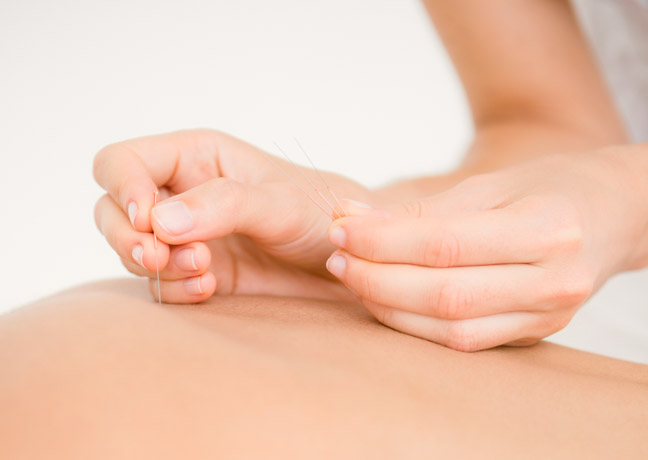New research concludes that scalp acupuncture "can significantly improve the efficacy on autism, effectively relieve child autism symptoms and enhance the intelligence, language ability and social adaptive ability."1 Keeping in mind that this quote is a literal translation from the Chinese language, this study does not claim that acupuncture cures autism but finds that scalp acupuncture helps to improve the patient's symptoms when part of a comprehensive treatment program. Seventy causes of child autism were divided into a control group (40 cases) and an observation group (30 cases). The control group received only music therapy and the structure education method. The observation group received scalp acupuncture in addition to the therapies given to the control group. After 60 acupuncture treatments, the improvement scores were tabulated using the Clancy Autism Behavior Scale, Childhood Autism Behavior Scale (CARS), Autism Behavior Checklist (ABC) and Gesell Developmental Scale. The study finds that age was not a factor noting that both the 4 to 6 years of age group improved and the 2 to 3 years of age group improved. The scalp acupuncture treatment priniciple used in the study was "regaining the consciousness and opening the orifice." A similar study concluded that scalp acupuncture combined with language therapy "has a significantly positive effect on language development in children with autism."

Another study demonstrates that a session of 12 acupuncture visits using electro-acupuncture improves functions in children with autism.3 Electro-acupuncture caused improvements in language comprehension and self-care ability for the children in this randomized, double-blind, sham-controlled, clinical trial of acupuncture for the treatment of autism spectrum disorder (ASD).
In this study, electro-acupuncture caused significant improvements in social initiation, receptive language, motor skills, coordination, and attention span. Improvements in motor coordination include better writing ability. Participants were better able to write words within set lines and squares. One participant had significant improvements in swimming ability and improvements in paper cutting were also noted. Interesting motor improvements include better walking posture, speed of walking, and ability to ascend and descend stairs.
Over 70% of the children with ASD were compliant and adapted easily to the acupuncture therapy while 8% were not compliant. This was the first study ever conducted using electro-acupuncture for ASD using a double-blind, randomized, controlled trial. Subjects from ages 3-18 participated in the study and children who had been taking anti-epileptic drugs or who had recently had acupuncture were excluded from the study.
Classic acupuncture points for the treatment of autism were chosen for the study. Sishencong (EX-HN1), YinTang (EX-NH3), Ear naodian (AT3), and Ear shenmen (TF4) were chosen as the primary acupuncture points. Neiguan (P6), Shenmen (H7), TaiChong (Lv3), and Sanyinjiao (Sp6) were selected as complementary acupuncture points. Children were in either in a supine or sitting position for the 30 minute acupuncture treatment. Sterile disposable .3 X 4cm (30 gauge) acupuncture needles were used and points were connected with a portable electro-acupuncture device. The investigational sham acupuncture points were chosen at a 3-5mm distance from the real acupuncture points. The treatment principle was to "to make the heart ‘unobstructed,’ regulate the liver, correct derangements or imbalances, enforce the emotion, dredge stasis, invigorate the spleen and kidney, and facilitate the source of vital function."
References:
1.Zhongguo Zhen Jiu. 2011 Aug;31(8):692-6. Treatment of autism with scalp acupuncture. Li N, Jin BX, Li JL, Liu ZH. Neuro-Rehabilitation Department, Nanhai Women and Children Hospital Affiliated to Guangzhou University of CM, Guangdong, China.
2.J Altern Complement Med. 2008 Mar;14(2):109-14. Scalp acupuncture effect on language development in children with autism: a pilot study. Allam H, ElDine NG, Helmy G.
3.Altern Med Rev. 2010 Jul;15(2):136-46. Randomized controlled trial of electro-acupuncture for autism spectrum disorder. Wong VC, Chen WX. Department of Paediatrics and Adolescent Medicine, Queen Mary Hospital, The University of Hong Kong, Hong Kong, China.

![Diseases, Symptoms, tcm, [tcmwindow.com]](/uploadFile/adImg/2015/11/11/f5cbfcc0-4df5-4646-9b9a-f316651a0199.jpg)





